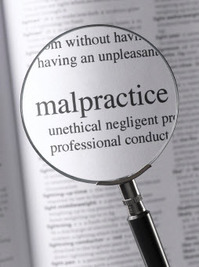 If you or your loved one suffered a serious, life-altering injury as a result of a medical mistake or surgical error and want to file a claim against the hospital, then continue reading. Our team of Virginia medical malpractice lawyers are routinely asked by clients whether or not a claim should be pursued against a hospital, along with the at-fault doctor or nurse. This article provides some general information about determining this important issue.
If you or your loved one suffered a serious, life-altering injury as a result of a medical mistake or surgical error and want to file a claim against the hospital, then continue reading. Our team of Virginia medical malpractice lawyers are routinely asked by clients whether or not a claim should be pursued against a hospital, along with the at-fault doctor or nurse. This article provides some general information about determining this important issue.
A hospital, as defined in Va. Code Ann. § 32.1-123, is any facility licensed in the primary functions of providing diagnosis, treatment, and medical and nursing services (either surgical or non-surgical services).
Hospitals can be sued for a medical malpractice injury under the corporate negligence doctrine.
The corporate negligence doctrine states that a hospital owes a direct duty to its patients to ensure their safety and well-being while at the hospital. The hospital’s have legal duties:
- To use of reasonable care in the maintenance of safe and adequate facilities and equipment.
- To select and retain only competent physicians.
- To oversee as to patient care all person who practice medicine within its walls
- To formulate, adopt, and enforce adequate rules and policies to ensure quality care for its patients.
These are tort duties that arise from the special relationship existing between a hospital and its patients, due to the vulnerability of physically or mentally ill persons and their inability to provide care form themselves.
These duties function under a direct theory of liability against the hospital and not simply a vicarious liability theory due to the negligence of its employees (e.g. physicians, nurses, and staff).
LEARN MORE
- Explaining the Legal Theory of Respondeat Superior in Virginia Personal Injury and Wrongful Death Law
- VA Truck Accident Lawyers: Investigations Into Truck Accident Injuries and Deaths
- Is the Lead Surgeon Responsible as the Captain of the Ship for Medical Mistakes in the Operating Room?
Examples of direct hospital negligence would be in failing to supervise patient care or in failing to enforce hospital guidelines regarding patient care. Furthermore, hospitals have a duty to their patients to verify the qualifications of admitted physicians and to review their performance (including competency).
In fulfilling these duties, a hospital must conform to the legal standard of reasonable conduct in light of the apparent risks, acting as a reasonably careful hospital would under similar circumstances as shown by the evidence.
A hospital can also be liable under corporate negligence if an attending physician fails to act in accordance with standard medical practice and the hospital staff fails to advise hospital authorities so that appropriate action might be taken.
Essentially, a plaintiff’s complaint of corporate negligence against a hospital must include allegations that prove:
- The hospital deviated from the standard of care
- The hospital had actual, or constructive notice, of a defect or procedure that resulted in your injury
- The hospital’s act, or lack of action, was a substantial factor in bringing about the harm.
However, there are some exceptions, which are codified in Va. Code Ann. § 8.01-38. For example, hospitals can be immune from personal injury liability for negligence on the grounds that the hospital exclusively provides charitable medical services for which they serve no bill for services, and no charge is made to the patient.
Another exception is when a patient was accepted as a patient under an express written agreement at the time of admission, providing that all medical services would be furnished on a charitable basis and without financial liability to the patient.